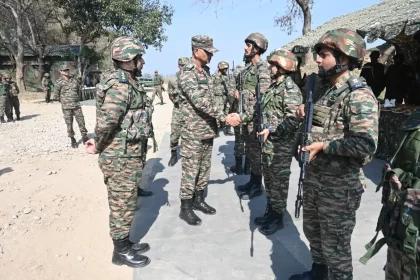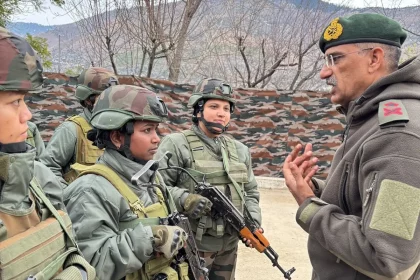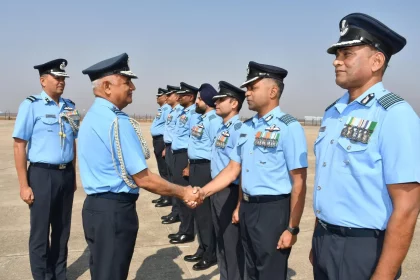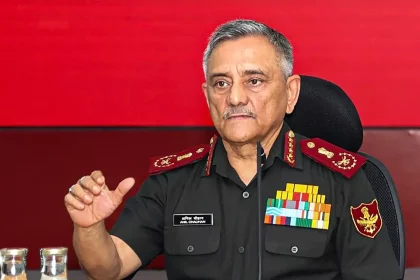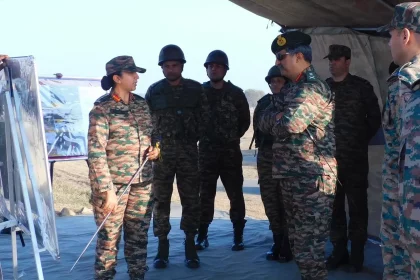Lt Gen Prasanna Kishore Mishra Reviews Security and Operational Preparedness in Pallanwala and Rajouri
White Knight Corps GOC assesses LoC defence posture and counter-terrorism grid alongside formation commanders.
Maj Gen Jai Singh Bainsla Interacts With Troops Deployed on Counter-Terrorism Duties in Jammu & Kashmir
ADG Assam Rifles reviews welfare and operational challenges, lauds professionalism and dedication.
Air Marshal S Shrinivas Reviews Training and Operational Readiness at Air Force Station Bidar
AOC-in-C Training Command flies with Suryakirans, interacts with instructors and trainee pilots.
Air Vice Marshal Ratnesh Gupta Reviews Operational Logistics and Maintenance Readiness Under Western Air Command
Senior Maintenance Staff Officer assesses preparedness, techno-logistics support and quality assurance at key strategic base.
CDS Flags Panchsheel Miscalculation, Says Nehru Assumed Border Issue Was Settled but China Thought Otherwise
CDS revisits 1954 Panchsheel legacy, highlighting divergent Indian and Chinese interpretations that continue to shape border tensions.
Lt Gen Rajesh Pushkar Reviews Forward Logistics Node Model During Pine Division Exercise
GOC Kharga Corps lauds strike–pivot corps synergy and transformational logistics for future battle readiness.

